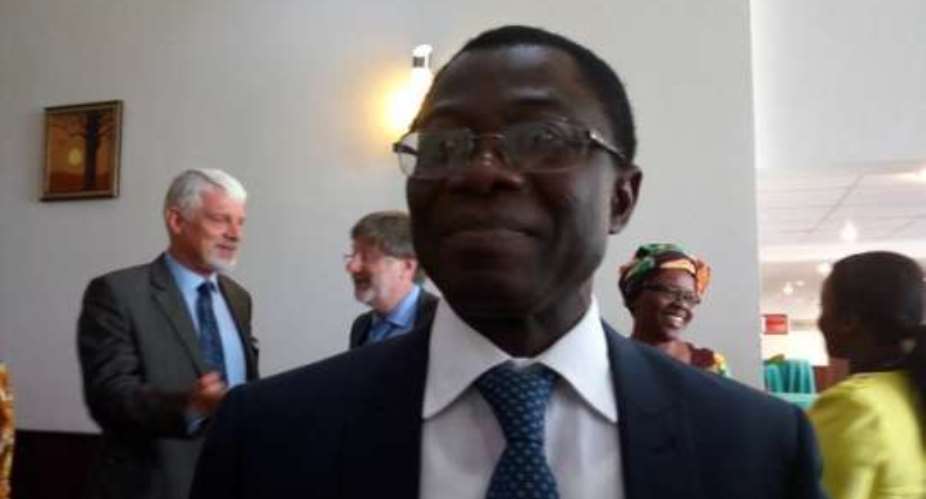By Iddi Yire, GNA
Accra, Oct 23, GNA - Professor S. Kwame Offei, the Pro-Vice Chancellor, University of Ghana (UG), has called for better ways of educating and equipping Africa's future leaders in order to leapfrog the continent's socio-economic development.
Prof Offei, was speaking in Accra at a two-day international symposium for Harmonisation Initiative and Third General Meeting of the Turning Joint Africa-European Union (EU) Strategy in Higher Education.
He said the initiative was put together to address key areas of skills and competences for employability and transparency of curriculum, and to develop a common academic credit system.
He said teachings, learning and assessment related to the development of learning outcomes, quality assurance and enhance were also considered.
Prof Offei appealed to Africa's distinguished scholars and teachers to share their knowledge and experiences, and to also work on the implementation of new and revised degree programmes following the Turning methodology.
He also called for discussions on the computation of student workload and credit applied in member countries, and to attempt at developing a harmonised system.
The two-day meeting, which brought together 130 participants, was organised by the University of Ghana in collaboration with the Africa Union Commission (AUC) and the Association of African Universities (AAU), under the auspices of the EU.
The global objective of the work on higher education in the framework of the Joint Africa-EU Strategy is to contribute and support the harmonisation of higher education programmes and the creation of a revitalised, distinctive, attractive and globally competitive African higher education space, through enhanced intra-African collaboration.
Prof Offei said in upscaling the pilot on Harmonisation and Turning initiative, the project had sought to tag on the second element in Harmonisation, Quality and Accreditation.
"It is anticipated that by so doing, Africa Higher Education would have a harmonised accreditation, credit system and quality assurance mechanisms that would ultimately enhance student mobility and global competitiveness," he stated.
Mr William Hanna, the EU Ambassador to Ghana, said the EU was supporting the development of the Pan-African Framework for Quality Assurance and Accreditation in the next three years.
"We know that higher education requires a solid framework, which builds on institutional, national and regional specificities and at the same time provides a common language and understanding of each other's systems to build up mutual trust and transparency," he said.
Dr Beatrice Njenga, the Head of Education Division, AUC, said the Division sought to contribute towards revitalised, quality, relevant, and harmonised education systems responsive to the needs of Africa, taking into account Africa's aspiration and capacity in terms of human and material resources.
Mr Samuel Okudzeto Ablakwa, a Deputy Minister of Education, in a speech read on his by Prof Mohammed Salifu, the Executive Secretary, National Council for Tertiary Education, said Africa needed to produce future leaders who would promote better governance and management in all sectors, and facilitate innovative solutions to society's problems.
"Universities are best placed to provide the trained labour force needed as the drive for knowledge-based economies takes hold on the continent," the Deputy Minister added.
GNA





 We’ll protect state wealth from opaque deals – Prof Jane Naana
We’ll protect state wealth from opaque deals – Prof Jane Naana
 Mauritania president says running for second term in June polls
Mauritania president says running for second term in June polls
 I won't ever say I was a mere driver’s mate' — Prof. Opoku-Agyemang
I won't ever say I was a mere driver’s mate' — Prof. Opoku-Agyemang
 2024 polls: 'EC struggling to defend credibility'— Prof. Opoku-Agyemang
2024 polls: 'EC struggling to defend credibility'— Prof. Opoku-Agyemang
 Akufo-Addo gov't's 'greed, unbridled arrogance, unrestrained impunity, sheer dis...
Akufo-Addo gov't's 'greed, unbridled arrogance, unrestrained impunity, sheer dis...
 Election 2024: Ghana needs an urgent reset, a leadership that is inspiring – Ma...
Election 2024: Ghana needs an urgent reset, a leadership that is inspiring – Ma...
 Partner NDC to rollout a future of limitless prospects – Prof Jane Naana Opoku-A...
Partner NDC to rollout a future of limitless prospects – Prof Jane Naana Opoku-A...
 NPP will remain in gov’t till Jesus comes — Diana Asamoah
NPP will remain in gov’t till Jesus comes — Diana Asamoah
 Sunyani Technical University demands apology from former SRC president over sex-...
Sunyani Technical University demands apology from former SRC president over sex-...
 'Dumsor' was resolved by Mahama but ‘incompetent' Akufo-Addo has destroyed the g...
'Dumsor' was resolved by Mahama but ‘incompetent' Akufo-Addo has destroyed the g...
